Considering how much has happened since I last wrote, it’s surprising that I feel like I have so little to say right now. I think in many ways, I’m beginning to find my community and my place in Kathmandu, and as much as I still don’t like it here, I’ve been busy, and I’ve met people who I am genuinely connecting with. When I get on a motorcycle to speed across the city and the driver asks me how much longer I have in Nepal, I find myself saying, “Less than one month, unfortunately…” and really meaning it. I don’t think that I’m as sad to leave the city as I am sad that I’m only just now meeting friends, finding ways to enjoy myself despite my location. All at once, it feels okay to live here—though, of course, having two weeks of vacation ahead of me and being able to leave the city always helps my mindset.
I have some belated sad news: when I came back from my trek in the beginning of December, I found out that my family’s new puppy, Hachy, hadn’t made it. My brother Aayush (11) told me with downcast eyes that she had gotten really sick and didn’t wake up one morning. Aarash (6) pointed upwards and said matter-of-factly, “Hachy is up there now.” I wasn’t there when it actually happened, and by the time I came back home, my brothers were somber but accepting of it. Then, just this last week, Aayush came up to me and said again, “a dog is coming to the house tomorrow!” I was surprised, and hopeful that things would go well this time. Sure enough, a small, blond puppy showed up at our house the next evening, and she was named Jerry. My brothers have commented that, so far, she is more scared than Hachy, but doesn’t bite and poops less around the house. They are still sad, but they are directing all of their energy into love for Jerry, and it’s really sweet to see.
It is, of course, the holiday season, and it can't be avoided even in Nepal. My parents brought me a small foam menorah to use during Hanukkah, which my brothers saw and immediately started playing with. They didn’t quite understand why I didn’t give them all the candles to play with and why I only added them one at a time. When I tried to explain to Aayush that I was celebrating a holiday, he asked me if I was getting time off from work, and I told him no. Then he asked me excitedly if it meant that I would eat meat, and I told him not that either. No stories of eight nights and Maccabees could have helped him understand the point of any holiday that didn’t have time off or meat. If it doesn’t have either of those things, his look seemed to ask me, then is it even a holiday?
Christmas, a holiday that Aayush could likely have an easier time getting behind, was more of an event. Because of the small Nepali Christian population, Christmas is a public holiday, and there were some (probably non-denominational) trees and lights scattered here and there, especially in Thamel, the tourist neighborhood. On Christmas Eve, some new French friends invited me to join them at a restaurant which turned out to be whoppingly expensive, but wonderful company saved the occasion. The next day, after a leisurely brunch with the same friends, I met up with some American friends at a bar where we had befriended the owner, who had invited a large group of people for a big Christmas dinner. It was an occasion full of holiday cheer and music, new friends and old, and the food was hours late but delicious. It’s amazing how quickly some twinkly lights can make you feel at home when you’re surrounded by people you’ve only just met.
Exams passed at my school in much the same fashion as always, and I alternately stepped up and sat back to watch things play out. The first day was the English exam, and I was put in a classroom alone with a mix of fourth and fifth graders, where I bluntly explained the rules: I was there to help them understand if they were confused, but I would not give answers, and they must keep quiet. To my amazement, they actually listened—the times when things got most difficult were when my co-teacher came in and started giving answers to anybody who asked, and then I had to hush all the kids after she left. Other days, I was assisting another teacher in a room full of older students whom I didn’t know, and I would watch, amused, as the perfect silence erupted the second the teacher left the room (and then I would attempt to quiet things down, of course).
Most days during exams, I found myself running around the classroom from student to student, trying to help them with math problems or science questions that I wasn’t sure how to explain in Nepali. A few times, on the English exam and others, I found myself working hard to translate something for a student, only to realize that language wasn’t really the problem: if a student doesn’t know what an angle is in English or Nepali, then they might just not know what an angle is. I’ve been focusing so much on language while teaching here that I forget that, sometimes, the student might just not understand the concept on the test in the first place.
After exams finished, my school had two days of picnics for the students before their vacation, which all the kids were really excited about. The first day was for KG through grade 3, who were adorable. We all met at school in the morning and got onto a reserved bus, which took us across town to a park on the outside of the city. The bus was quite an event in itself, since lots of my students don’t ride any kind of vehicle often, and when we first got on the teachers were handing out plastic bags to nearly all the students in case they got carsick. When I sat down next to two kids and asked them if they would get sick, one smiled at me and nodded, and the other one said, “only a little bit.” I made sure they both got plastic bags.
At the park, we marched the kids two by two up to a sunny spot, where they ran around, went down the slide, and circled up to play some games together. We walked them over to a big stone staircase leading up to a statue of the late king Tribhuvan, the ruler who oversaw the end of the Rana regime and beginning of democracy in Nepal, and also the namesake of the park we were in. Teachers spent a while taking pictures of the students class by class, as well as taking selfies on the side. A couple of my second graders invited me to come sit with them and share our lunches, but I’d already made plans to share with the teachers, so I only had chiura, or beaten rice, and wasn’t a great person to share with. After some more games, the time came to load back onto the bus, and this time one the kids next to me wasn’t lucky enough to make it back without being sick. I waved goodbye to students as they walked home, and hugged a few of my second graders, not sure if they really knew it was probably the last time they would see me.
The next day, grades four through seven went to two museums and then Swayambhunath, the monkey temple. Some kids got carsick, but most of them just took turns singing and yelling periodically as the bus flew across the city. At the same time, the bus ride was probably a big deal for many of my students, and a lot of them told me that they had never been to Swayambhu before—a major Kathmandu landmark just 30 minutes from Kirtipur. Students had their eyes glued to the windows the whole time, excitedly pointing and talking about everything we passed. Even the ones who got sick still looked thrilled when they got off the bus.
At the first museum, the teachers led the students in one long single-file line through a variety of exhibits each building, and the students willingly shuffled along without complaint. Nobody stopped to look at anything, but instead they moved as if on a conveyer belt past each display without changing pace. There were, of course, more photos taken, and then we moved on. The second stop was a natural history museum with no lighting, and for some reason this time we let the students run wild through cases of bones, taxidermied animals, and jars of formaldehyde in the dark. We had lunch on the grass outside, and kids who finished early threw things to keep away the monkeys eyeing our food. At Swayambhu, we walked the kids around to the stupa and they spun the prayer wheels, and a couple of sixth grade boys stole me away from the group to walk together. Back at school, I watched my students walk home in the hazy afternoon light, and I walked home, alone.
That same night, I caught a bus to Pokhara with Alyssa, one of the new friends I met in Kathmandu, eager to get out of the worsened winter Kathmandu pollution. We arrived at six o’clock the next morning having hardly slept, but after a little nap we were ready to join Simon, another new friend, and walk into town. The weather remained foggy and polluted the whole time I was in Pokhara, but the energy was upbeat—a large section of the road by the lake was closed off to vehicles, and all along the pedestrian street were vendors selling gifts and snacks. It was chilly outside, but the time passed quickly, warm with the presence of new friends and slightly less new friends, a feeling I’ve been missing for a while.
On New Year’s Eve, the streets were as packed as any festival I’ve seen here, with lots of Nepalis as well as Indian and foreign tourists. There was food, music, and dancing, and we made our way up and down the street taking it all in. We also stopped by Pokhara Disneyland, an amusement park by the lake with all kinds of rides, including a Ferris wheel that spun much faster than I would consider normal (or enjoyable). When we discovered they were out of skates at the roller rink, I opted out of the Ferris wheel and sat by the lake. As it came close to midnight, we stood in a crowd waiting to see if there would be a countdown—there wasn’t, but when everyone’s phones struck twelve we cheered and hugged to welcome in the new year.
And now I’m escaping again, putting off thinking about what the new year means to me and how I feel about finishing school by fitting in one last trek before I go. But as my bus carries me up into the mountains, I sense that I may not be running away after all—in fact, some time away from the city might be just what I need to reflect on the feelings that I don’t have time for in my daily life. The past year held countless adventures and disappointments alike, and just because it’s January doesn’t mean that I can make sense of it all quite yet. I’m only just starting to process, and I have a feeling that it will take me a long time.
All I can really say is that for all the sadness that I’ve felt here, I feel just as sad to think of leaving so soon. I will not be distraught at all to leave Kathmandu behind, but I am finding the beginnings of a community, the kind that could really make living here tolerable (if not, from time to time, perhaps enjoyable), and my excitement about that is matched only by my regret that I can’t stay longer to keep building it. But on my mind today are my students, the real reason why I came here, the ones I saw week after week in the classroom and talked to and grew to know and love. I don’t feel ready to let them go, and—as painful as I might have found an extended goodbye ceremony at my school—I wish that I had the chance to say goodbye and thank you to them all. Wherever they might be right now, I’m thinking of them, and I will be for a long time.
Until next time: peace!
Much love,
Oren
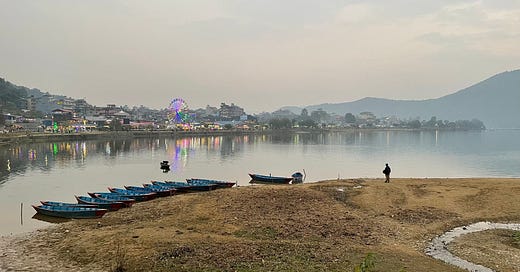



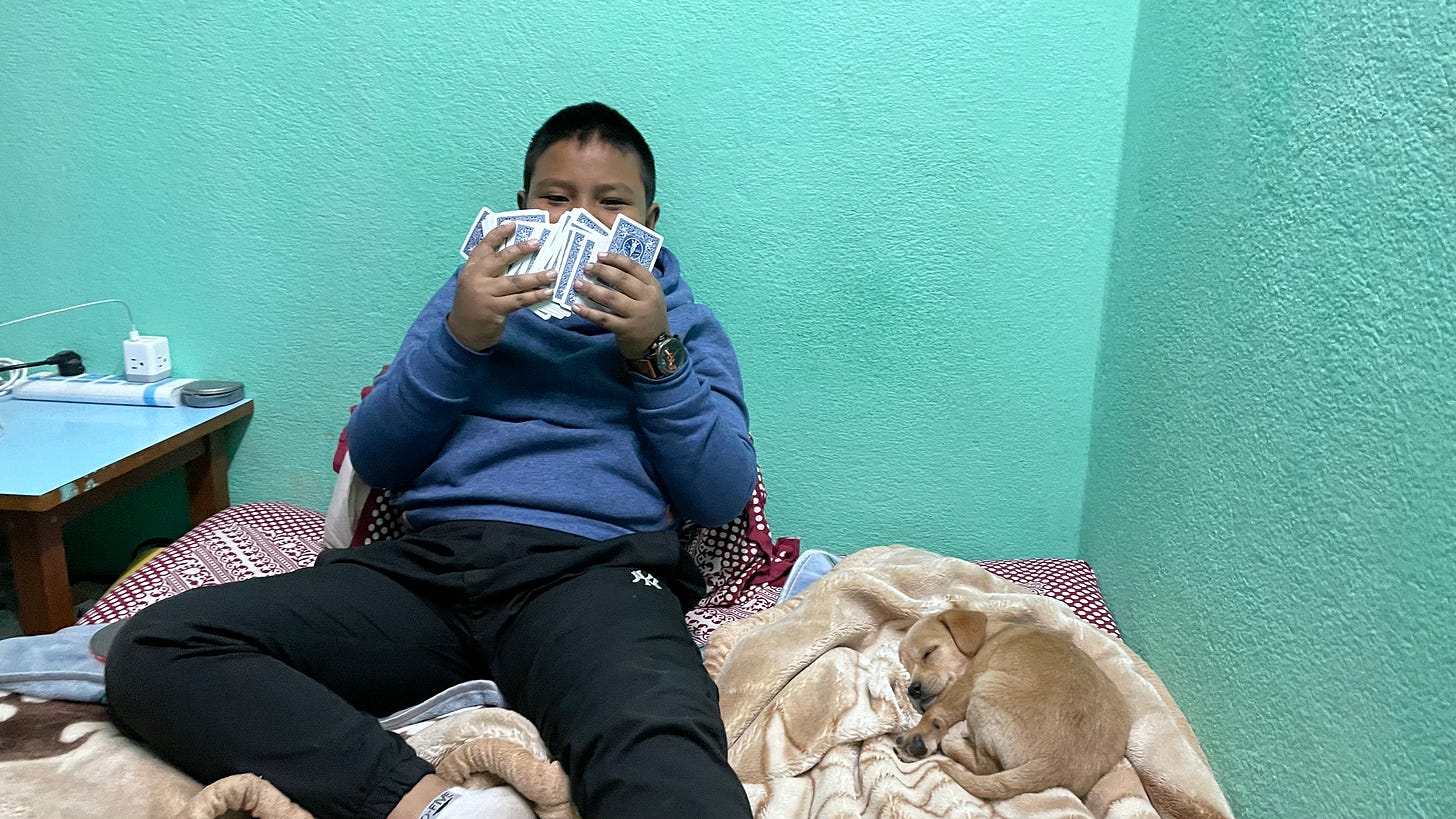
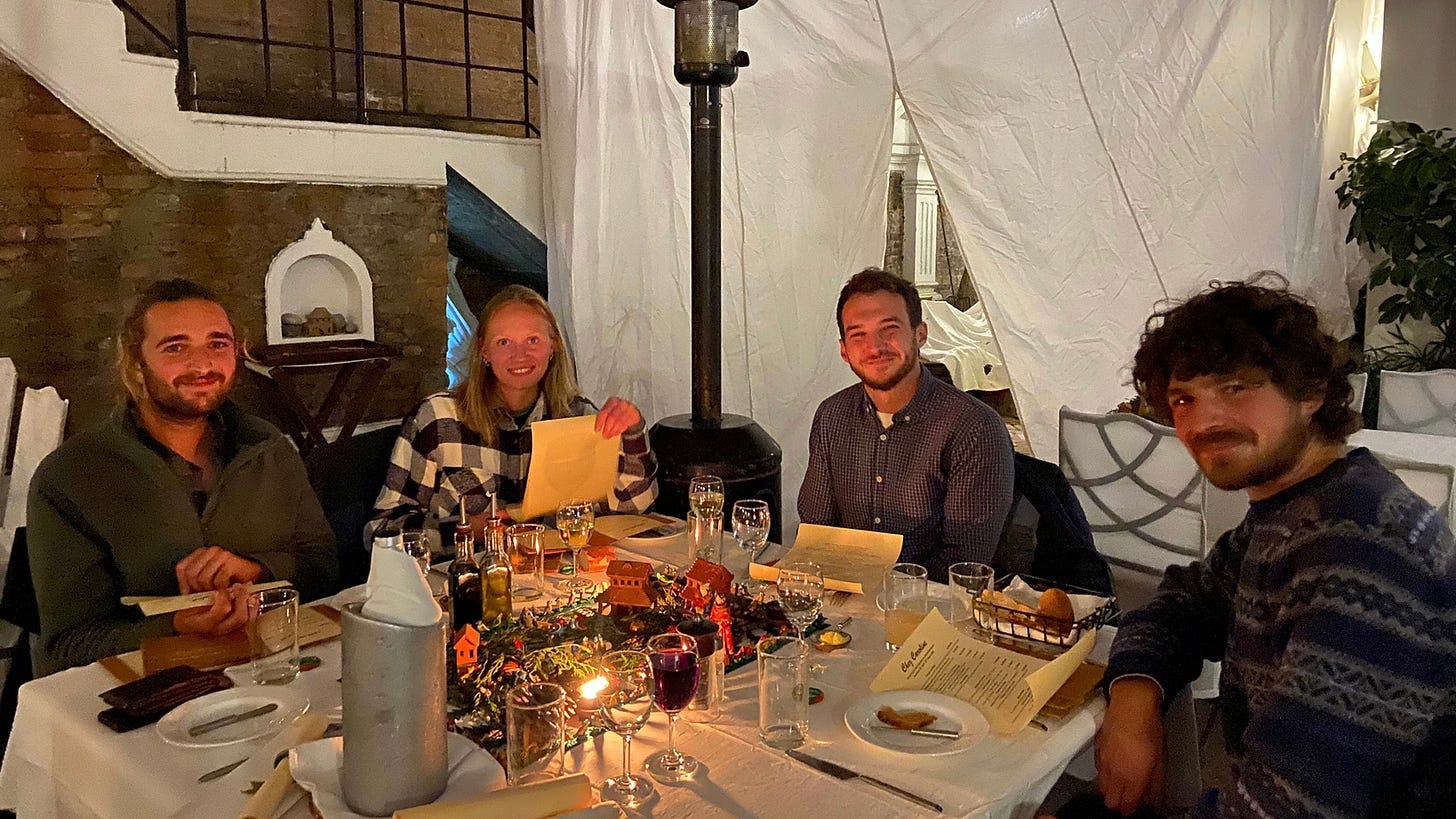
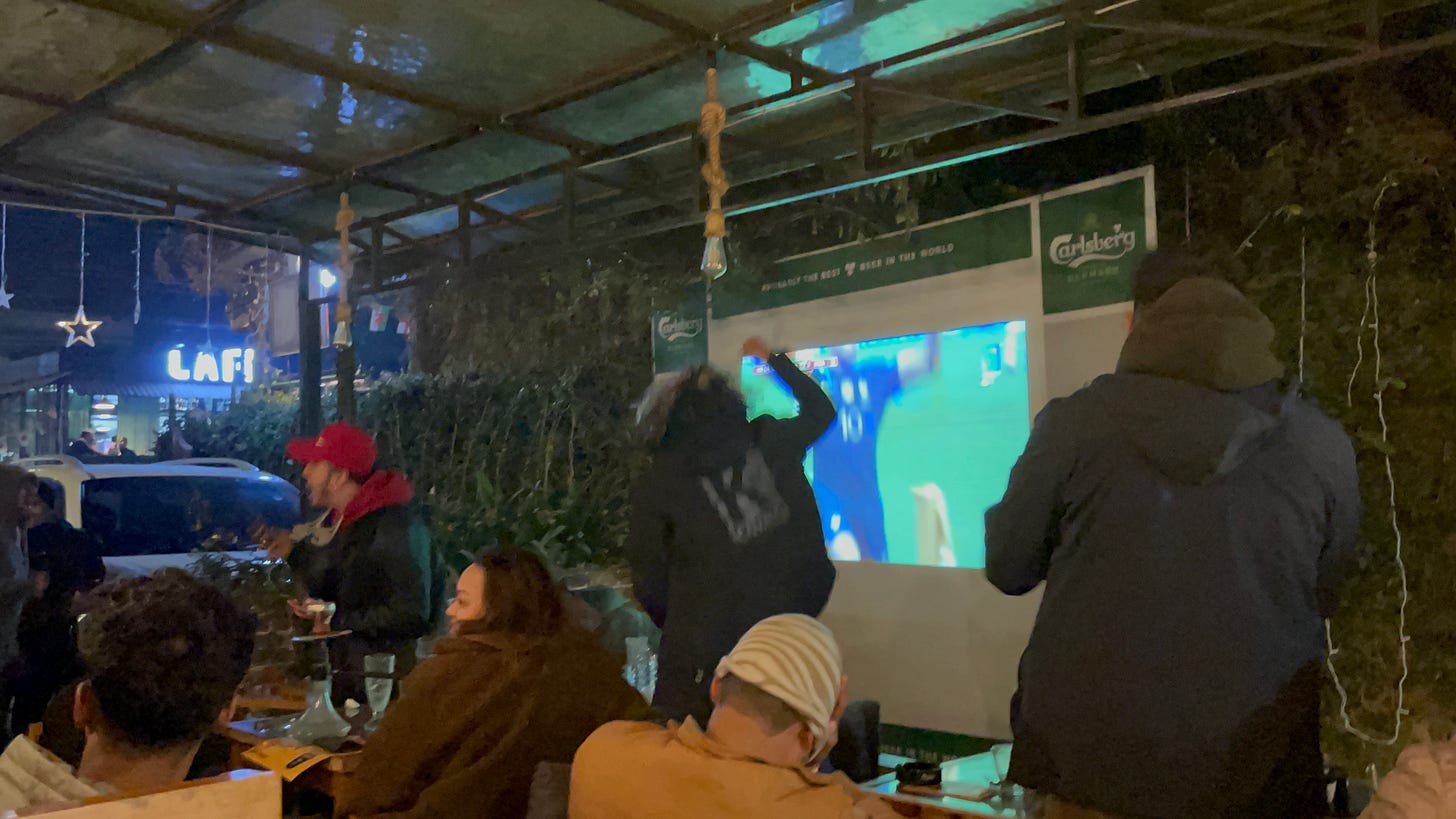
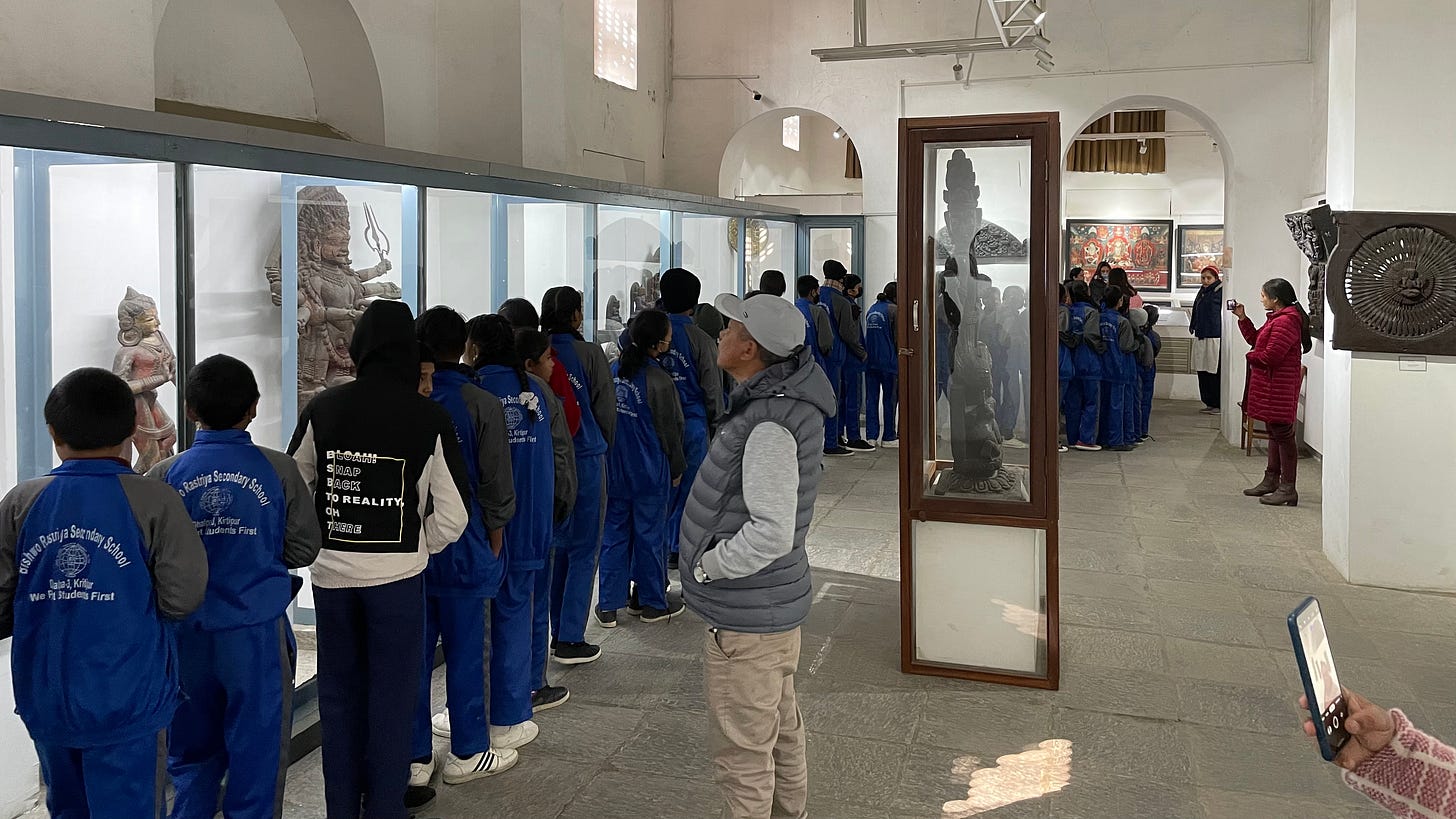
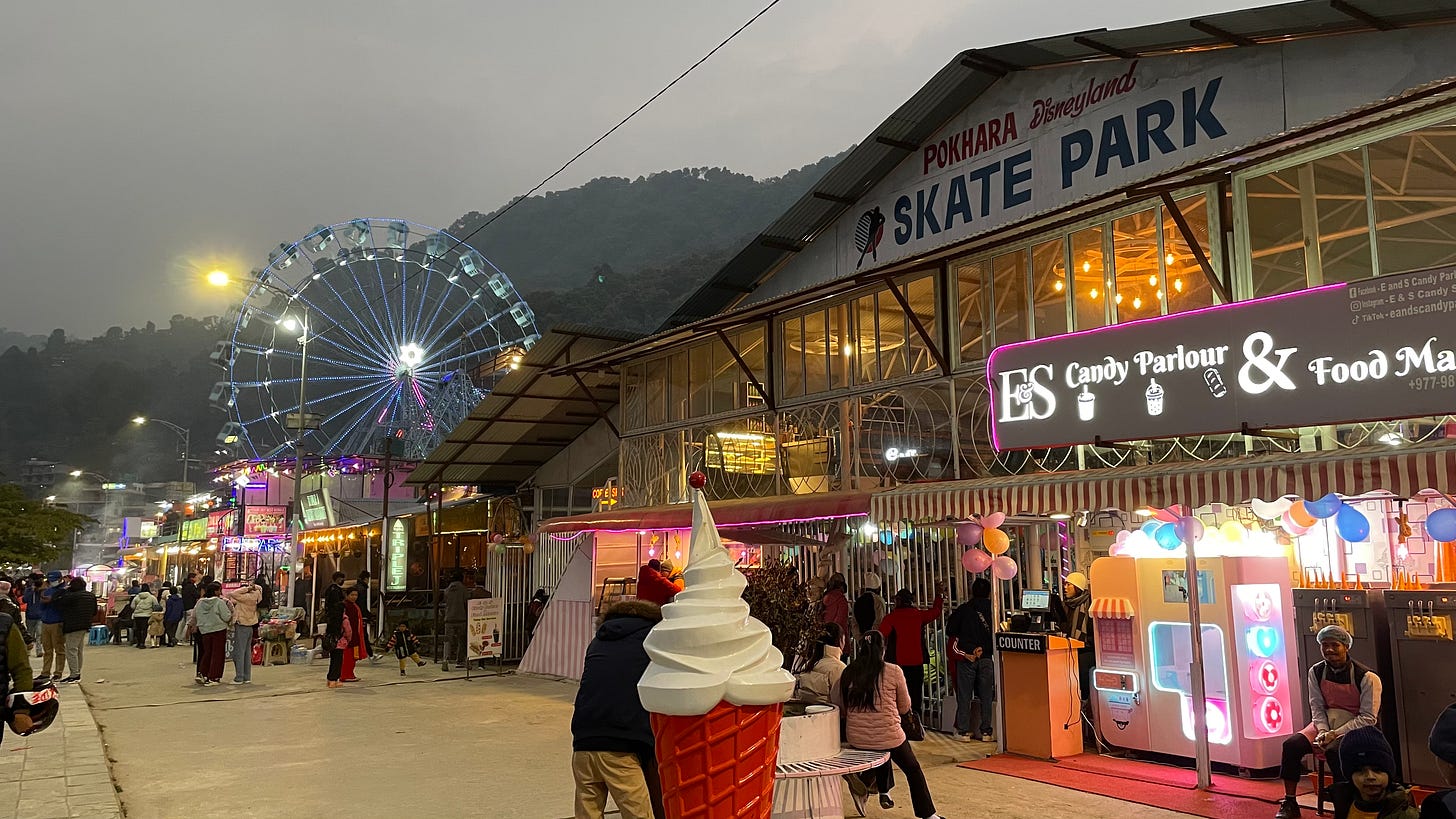
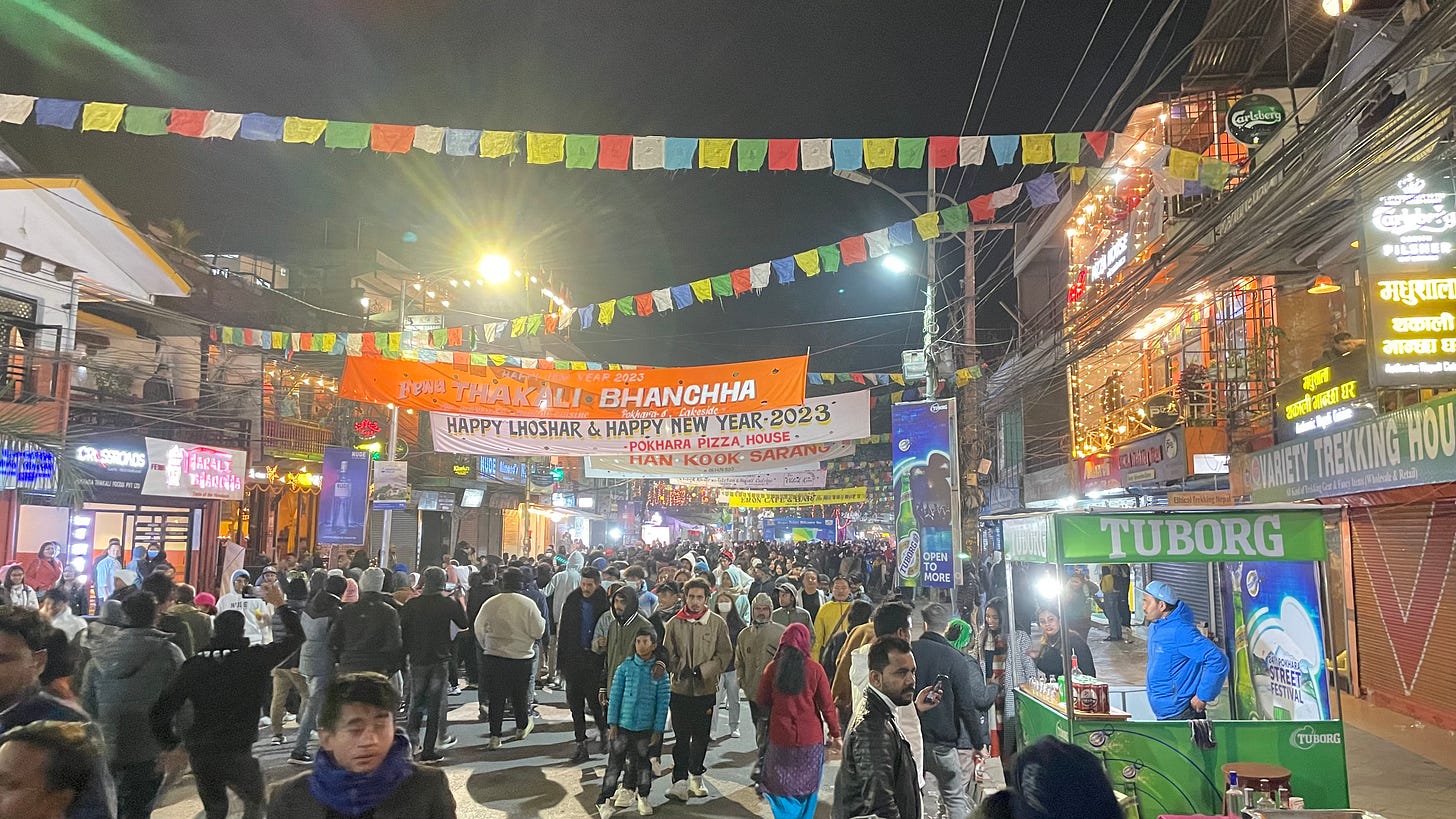
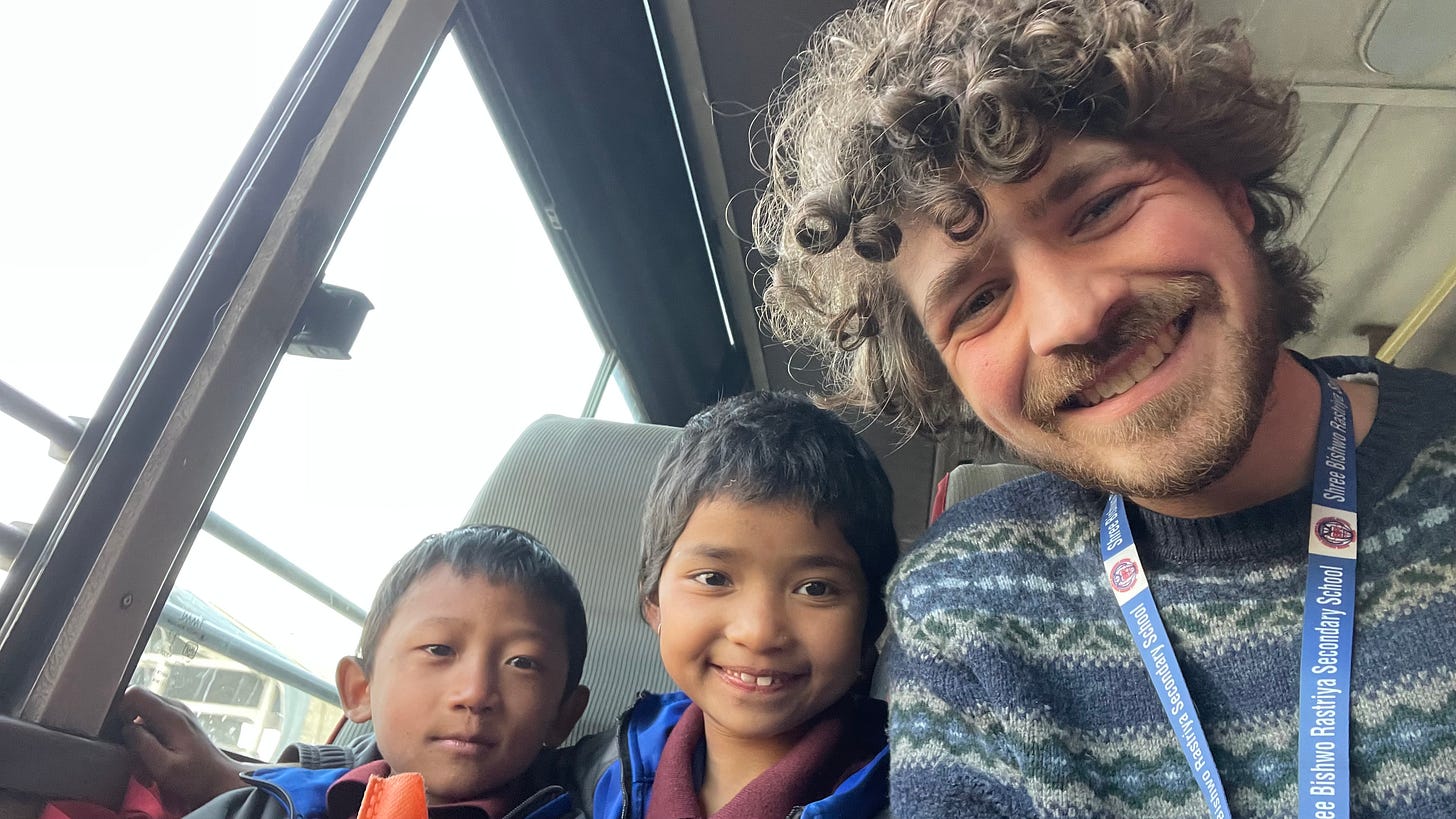
Happy New Year Oren! You’ve had a great adventure and I’m excited for you to explore a little more on your way home! It’s always great to read your blogs and I hope 2023 is a wonderful new year for you!